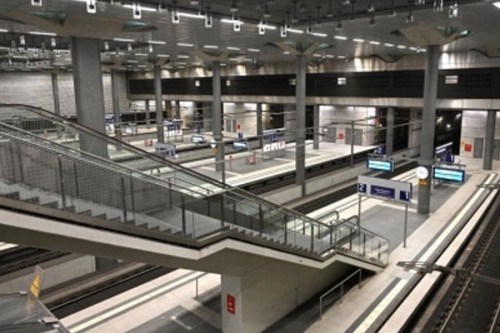German strikes bring public transport to standstill

Berlin, March 28 (IANS) Nationwide union strikes in Germany brought train, bus, and airplane traffic to a virtual standstill, affecting millions of commuters with freight traffic also being heavily disrupted.
All major airports in Europe's largest economy were hit by the strikes on Monday, except for Berlin, reports Xinhua news agency.
According to the German Airports Association (ADV), some 380,000 business and private travellers were affected by cancelled or severely delayed flights.
Meanwhile, long-distance railway traffic completely shut down, with only a few regional trains operating.
The country's waterways and ports, as well as the highway system, were also affected.
With record inflation reducing real wages, public transport employees in seven German states went on strike.
"This day of strike action in the transport sector is intended to make it unmistakably clear to employers that employees are clearly behind our demands," head of the Verdi union Frank Werneke told the German Press Agency (dpa) on Monday.
Verdi had called the strike together with the Railway and Transport Union (EVG).
Public sector workers are demanding 10.5 per cent more pay, with a minimum increase of 500 euros ($540) a month.
Parallel to the strikes on Monday, a third and supposedly final round of negotiations is taking place.
"I cannot understand why the strikes are now taking place across the board and with such intensity -- the unions are going too far," Karin Welge, president of the Association of Municipal Employers' Associations (VKA), said last week.
The current offer from public employers includes a 5 per cent wage increase in two steps, as well as a tax-free one-time payment of 2,500 euros.
Now the workers' unions "have their turn to move in the direction of a compromise", Welge said.
For weeks now, there have been repeated public sector strikes in parts of Germany.
With thousands of flights cancelled, airports have been particularly hard hit, although they account for only a small proportion of the workforce.

|

|

